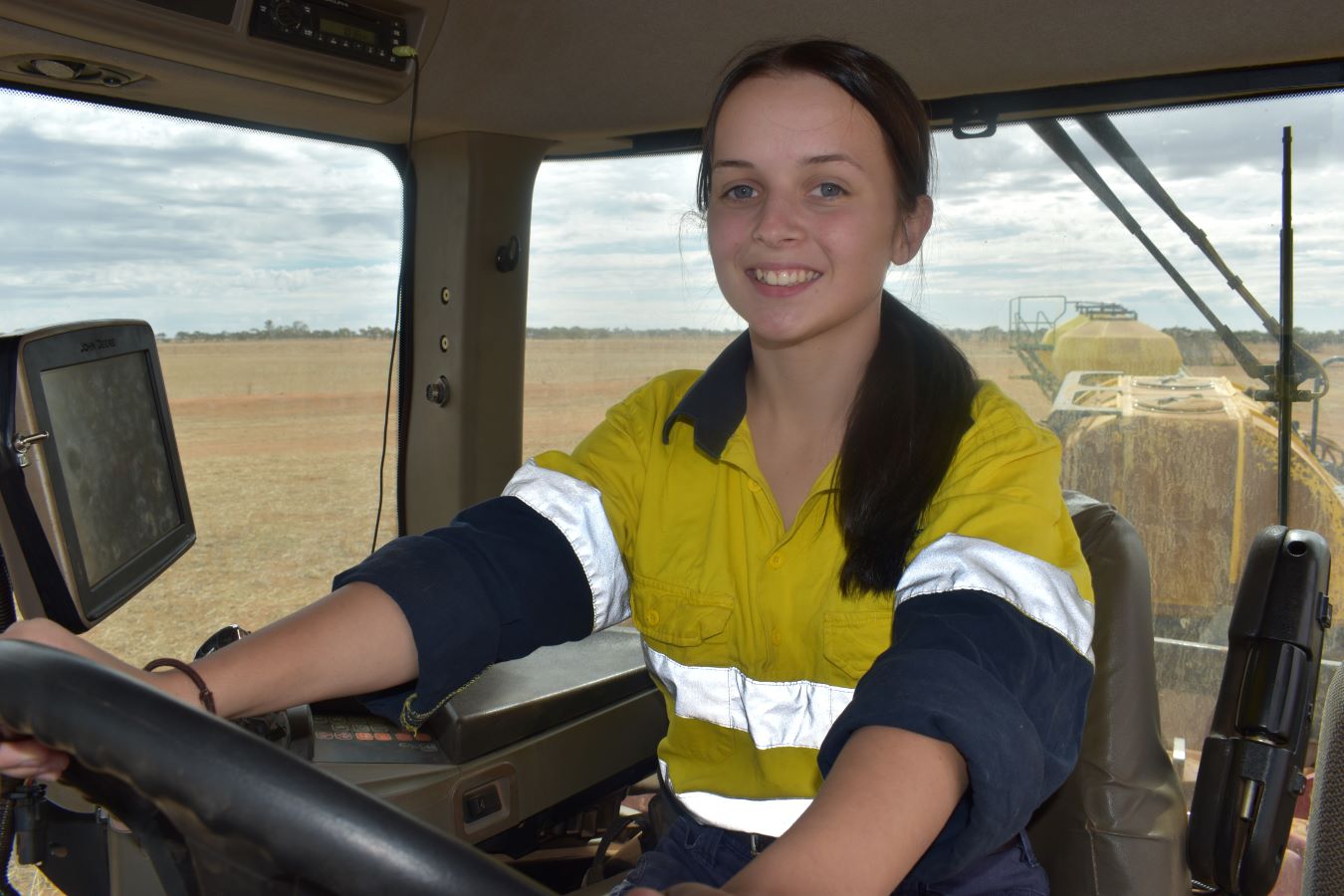Key points
- Industry trials integrated into curriculum at Morawa Agricultural College
- College’s business networks spark student interest in possible careers
When Laconik chief executive Dr Darren Hughes was asked to locate a trial in his GRDC-supported fallow research project at Morawa, it was a logical decision to site it at his alma mater; Morawa Agricultural College.
A graduate of the college in the late 1990s, Dr Hughes was the college’s first-ever student to pursue tertiary studies, which culminated in him completing a PhD under Dr Bob Belford’s guidance at Curtin University. After a stint working in research management for GRDC, Dr Hughes launched a tech start-up company, Laconik.
He has returned to the college to give back as a member of the board, but this more recent involvement was much more practical.
“As established professionals, we have benefited so much from our education and there comes a time in your career when you should give back,” Dr Hughes says.
The college is 370 kilometres due north of Perth and receives an annual average rainfall of approximately 340 millimetres. It has approximately 1800 hectares of arable land.
Dr Hughes has been working with Morawa Agricultural College’s farm manager, Dave O’Neill, to set up a two-year trial on the college that has been integrated into components of the college’s curriculum.
The trial is investigating the agronomic and economic benefits of fallow in Western Australia’s low-rainfall zone. This is being achieved by running several large strips with different treatments including vetch, a brown-out and volunteer pastures and returning the strips to cereals the following season.
“The trial at Morawa is one of several in low-rainfall environments across WA. It has involved soil sampling to determine moisture and nutrient levels, monitoring plant establishment and then following crops through to final yield and quality assessments,” Dr Hughes says.
Curriculum links
Mr O’Neill says the college works to integrate these industry trials into the curriculum.
“For example, we can integrate these on-farm trials of Laconik’s into the Year 11 and 12 courses and the Certificate II and III level courses in agriculture, so the students can demonstrate competencies such as soil sampling, assessing crop establishment and chemical handling and spraying,” he says.
The field work meets the learning styles of our practical students. We can then dig a bit deeper to discuss the science in the classroom.
The college’s association with Laconik is part of a more extensive network of industry linkages.
“We have been hosting National Variety Trials (NVT) for GRDC for the last seven years, firstly with Living Farm and this season with Crop Circle Consulting,” Mr O’Neill says.
 Kelsey Berry takes the wheel during seeding of trials at Morawa Agricultural College. Photo: Morawa Agricultural College
Kelsey Berry takes the wheel during seeding of trials at Morawa Agricultural College. Photo: Morawa Agricultural College
“Students can learn about variety evaluations and see the process of generating decision-support information for growers on variety choice.
“We are also part of Morawa Farm Improvement Group. This provides the opportunity for students to partake in field days hosted at the college, to showcase the NVT trials and other trials hosted on the farm.
“These events can expand networks further for the students as they mix with industry people and can really see the grains industry in action.”
Agrarian Management consultant Craig Topham has consulted to the college since 1995 and currently is chair of the college’s agricultural advisory committee.
He has seen a few changes in that time – not only agronomic but also in the network engaged by the college, which has grown over time.
“These networks expose the students to the bigger agricultural picture, stimulate them to think outside of the box and to see real opportunities post-school,” Mr Topham says.
“As the college increasingly draws more students from non-agricultural backgrounds, this is really important to spark their interest.”
As well as networks in the agronomy sector, the college also has business links for its stock and machinery side, as it offers engineering and automotive courses.
“The college works hard to keep its machinery up-to-date, including lease arrangements on equipment, which enables continual updating,” Mr Topham says.
“Additionally, the ‘ride and drive’ days hosted on the college grounds for machinery dealers have proved very successful for both local growers and the students.”
Lessons from fallow trials
So what have Dr Hughes and the college students learnt from the fallow trial?
“Growers considering a fallow should implement a ‘brown-out’ practice, maintain stubble and keep paddocks weed-free. This practice maximises the retention of soil moisture, allows nitrogen to accumulate and be available for the following crop and provides an opportunity to identify and control glyphosate resistance ryegrass,” Dr Hughes says.
“Furthermore, the cereal-on-cereal treatment recorded the highest gross margin over the project’s term. Despite the negative cash flow from fallow, growers in the low-rainfall zone still regard the rotation option as having a positive economic benefit to the farm system overall.
“Perhaps fallow might be best considered a strategic investment and recorded as an asset on the grower’s balance sheet.”
More information: Dr Darren Hughes, darren.hughes@laconik.com.au, 0436 115 462

























































